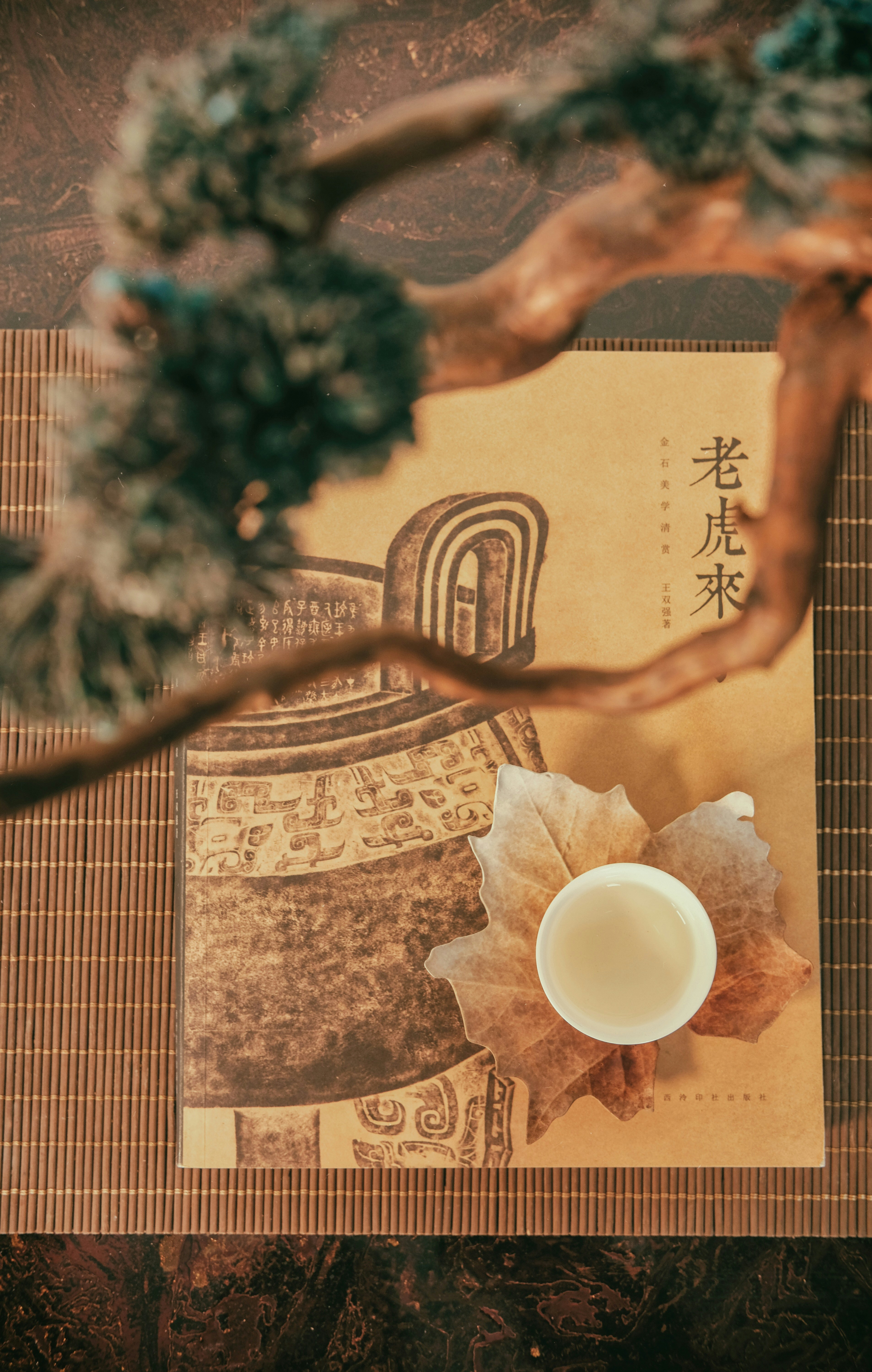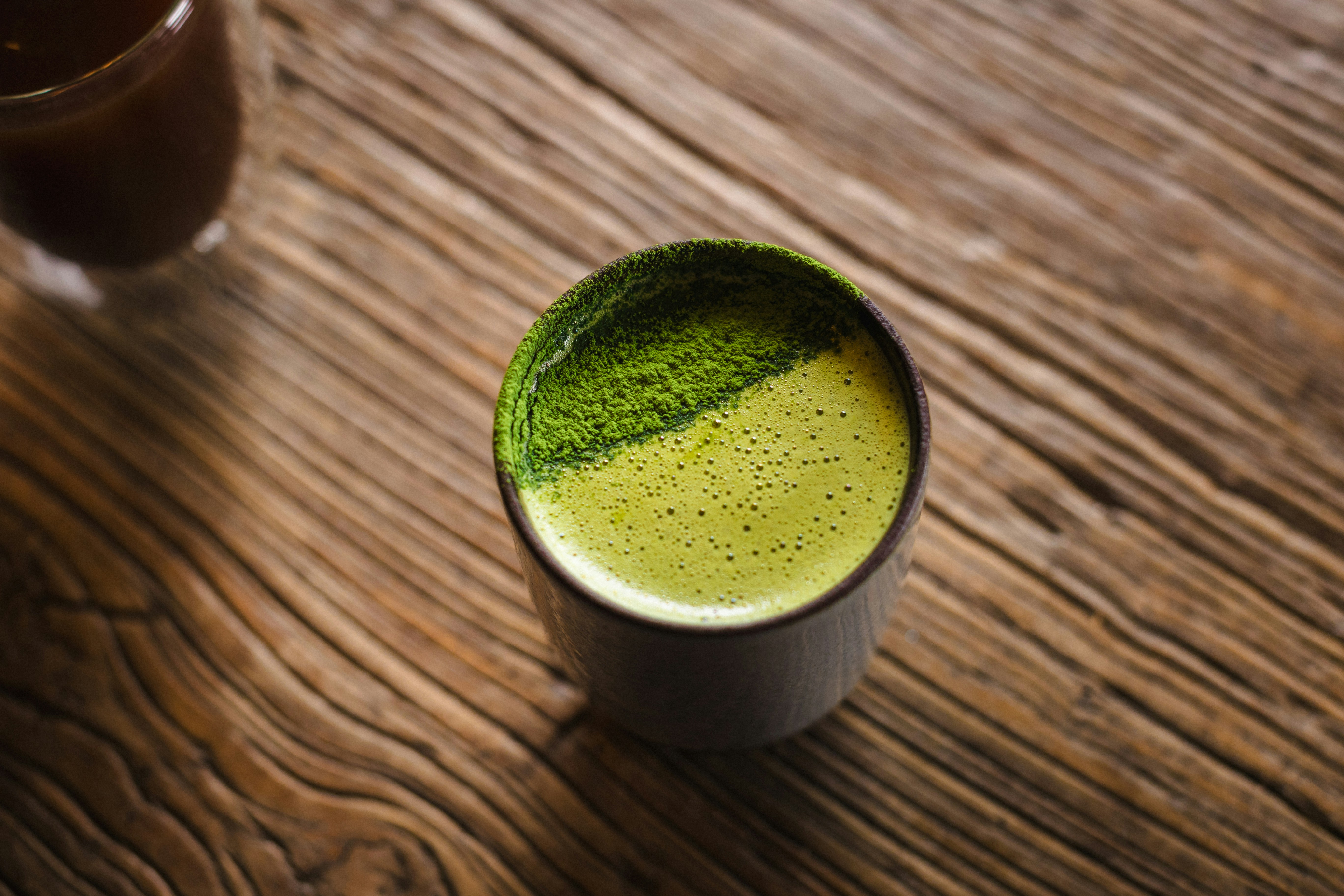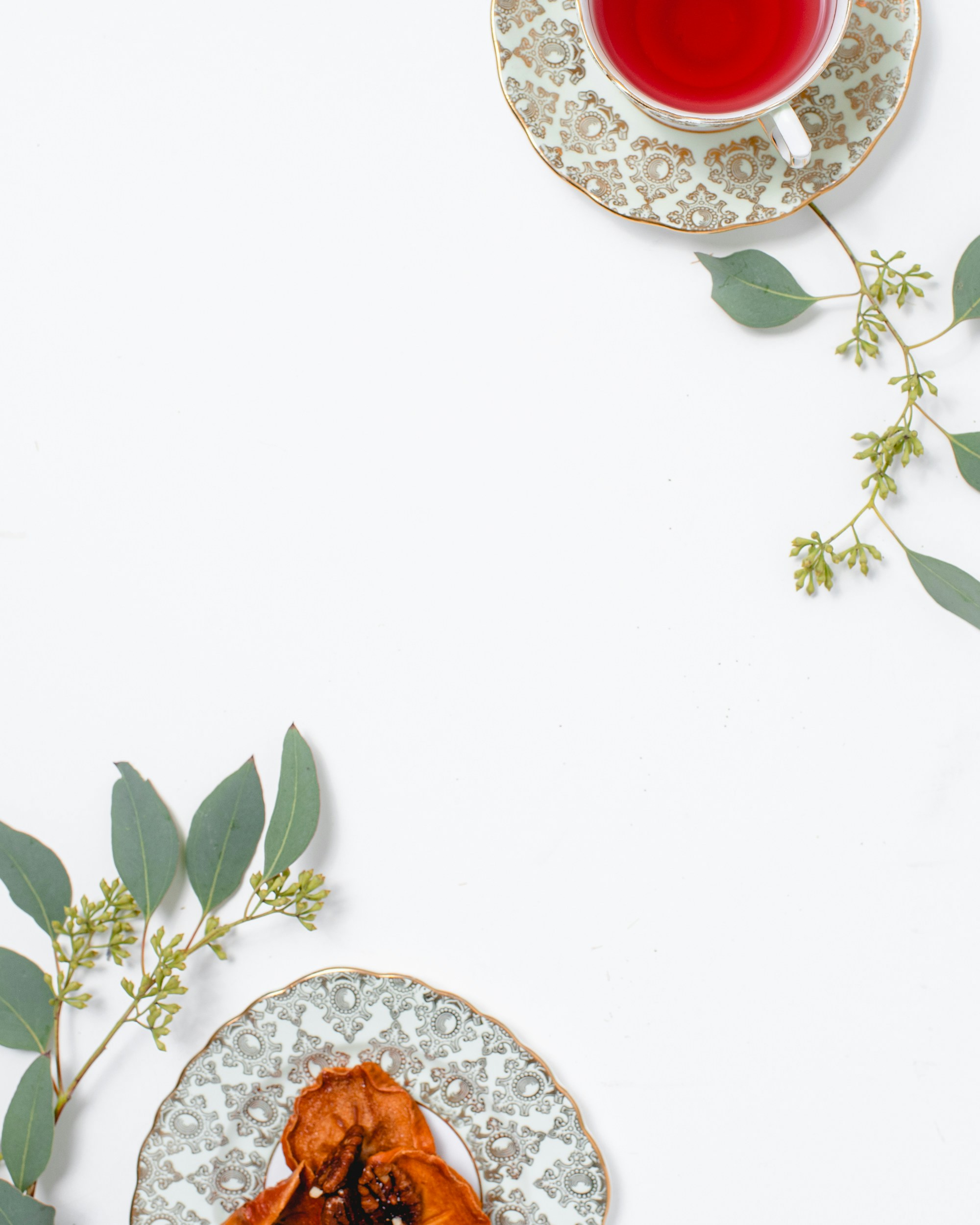Introduction
Tea, a beverage steeped in history and tradition, holds a significant place across various cultures, transcending mere consumption to embody a profound essence in our daily lives. Across the globe, from the tea ceremonies in Japan to the bustling chai stalls in India, the act of preparing and enjoying tea has long been regarded as a ritual that nurtures both body and spirit. This ancient drink serves not only as a source of hydration but as a tool for fostering spiritual wellbeing, connection, and solace.
The multifaceted role of tea in our lives is evident in its ability to promote mindfulness and reflection. Many cultures embrace the act of brewing tea as a form of meditation, allowing individuals to pause and center themselves amidst the chaos of everyday life. As the steam rises and the aroma fills the air, moments spent with tea can transform into sacred rituals, creating a space for personal contemplation and deeper understanding of oneself. In my own experiences, I have found that sipping tea offers a simple yet profound opportunity for grounding and clarity, constructing a bridge between the inner self and the external world.
Furthermore, tea often brings people together, acting as a conduit for meaningful conversations and connections. Whether it is during a shared pot of herbal tea among friends or a traditional afternoon tea with family, these moments can create a sense of unity and understanding. In many societies, the act of serving tea is synonymous with hospitality and respect, reminding us of the importance of bonding with others. As we navigate through the complexities of life, the universal practice of sharing tea illuminates our shared experiences and the interconnectedness of our spiritual journeys.
The Historical Roots of Tea and Spirituality
The journey of tea, particularly concerning its spiritual significance, reveals rich historical roots intertwined with various cultures and belief systems. Originating in ancient China, tea was first consumed for its medicinal properties during the Shen Nong period. Over the centuries, its role evolved, becoming a symbol of social and spiritual connection. In the xiaoshan tradition, tea was not merely a beverage; it was treated with reverence, regarded as a bridge between the physical and spiritual realms.
In Zen Buddhism, the practice of appreciating tea cascaded into a transformative ritual known as the tea ceremony. This ceremony, or “Chanoyu,” is a meditative practice where the act of preparing and consuming tea embodies mindfulness and the pursuit of enlightenment. The ritual emphasizes a deep appreciation for the present moment, promoting a tranquil mind and a heightened spiritual consciousness. Each step in the ceremony is purposeful, reflecting the essence of Zen philosophy, which advocates for simplicity and clarity.
Taoism also embraces the spiritual dimensions of tea, viewing it as a means to connect with the natural world. For Taoists, drinking tea is a method to achieve harmony with nature, as it integrates the elements of earth, water, and fire in a harmonious brew. The practice supports an inner balance that leads to spiritual well-being. Through ritualized tea-drinking, Taoists cultivate virtues such as respect and calmness, allowing individuals to align their inner selves with the universe.
Moreover, cultures worldwide have integrated tea into their spiritual rituals, considering the drink as a sacred element. Whether in Japan, where matcha is whisked in ceremonies centered on peace, or in Tibetan Buddhism, where butter tea is consumed during practices, the importance of tea is consistently mirrored through its spiritual engagements. Thus, the link between tea and spirituality encapsulates centuries of cultural traditions, enriching the lives and spiritual journeys of those who partake in its consumption.
Tea as a Mindfulness Practice
Engaging with tea can be a profound practice of mindfulness, offering individuals a unique opportunity to embrace the present moment. The process begins long before the first sip; it starts with the careful selection of tea. Selecting the variety of tea, whether it is a soothing chamomile, vibrant green tea, or robust black tea, allows one to reflect on their preferences and what they seek from the experience. Each type of tea carries its own characteristics, influencing both the flavor and the ritual.
Next comes the act of boiling water—a simple yet intentional step. Listening to the sound of the kettle, watching the steam rise, and observing the bubbles form can all serve as reminders to focus on the here and now. This sensory engagement fosters a deeper connection to the environment and the moment, enhancing one’s ability to practice mindfulness.
Steeping the tea is perhaps the most meditative aspect of the preparation. This phase is about patience, allowing the flavors and properties of the leaves to infuse the water. As one times the steep, they can breathe in the aroma, savoring the anticipation of the first taste. This act encourages a state of awareness, creating a bridge to the present moment and promoting a sense of calm.
Many individuals find that their tea rituals offer personal insights into their lives. For instance, one might recall how the warmth of a cup can evoke memories of shared moments with loved ones or peaceful intervals during a busy day. By intentionally cultivating this practice, they can center themselves, reduce stress, and foster a greater sense of connection with their thoughts and feelings. Through the artful preparation and consumption of tea, mindfulness can flourish, nurturing both spiritual wellbeing and inner peace.
The Therapeutic Benefits of Tea
Tea has long been celebrated not only for its delightful flavors but also for its profound therapeutic benefits that can enhance spiritual wellbeing. Numerous studies have shown that the consumption of different types of tea can significantly contribute to mental clarity, stress reduction, and emotional balance. For instance, green tea, known for its high levels of antioxidants, has been linked to improved cognitive function and concentration. The presence of L-theanine, an amino acid found in green tea, aids in relaxation without inducing drowsiness, thus promoting a calm focus during meditation or mindfulness practices.
Chamomile tea, with its gentle, calming properties, is often recommended for those seeking relaxation and stress relief. Research has demonstrated that chamomile can help alleviate symptoms of anxiety and insomnia. Many who incorporate chamomile tea into their evening routines report a sense of tranquility that prepares the mind for restful sleep, further supporting emotional well-being. Its soothing effects have been validated by various testimonials, where individuals share their experiences of improved mood and stability after regular consumption.
Moreover, herbal blends that include ingredients such as lavender, peppermint, and lemon balm have become increasingly popular for their healing properties. These blends are thought to work synergistically, offering benefits such as enhanced mood, reduced anxiety, and an overall sense of balance. Anecdotal evidence supports these claims, with many tea drinkers recounting how specific blends have aided in their daily stress management and contributed to a more harmonious state of mind.
Overall, the ritual of brewing and savoring tea can serve as a mindful practice that fosters a deeper connection to oneself and one’s surroundings. As tea drinkers immerse themselves in the aroma and flavor, they often find not just a beverage, but a pathway to emotional equilibrium and spiritual upliftment.
Creating a Personal Tea Ritual
Establishing a personal tea ritual can be a transformative experience that supports spiritual wellbeing. The first step involves selecting appropriate teas that resonate with your intentions and desired outcomes. Different types of teas possess unique properties; for instance, chamomile is often celebrated for its calming effects, while green tea is recognized for its invigorating qualities. By aligning your tea choice with your spiritual goals, you enhance the ritual’s effectiveness.
Once you have chosen your tea, setting the right environment is essential. Consider the lighting in your space; soft, warm light can create a comforting atmosphere that fosters reflection and peace. Scents also play a significant role in establishing a tranquil ambiance. Incorporating aromatic candles, essential oils, or incense can enhance the sensory experience, promoting relaxation and mindfulness. Aim to create a space that encourages stillness, allowing you to fully immerse yourself in the ritual.
Integrating elements of intention-setting, gratitude, or meditation into your tea ritual deepens its significance. Before pouring your tea, take a moment to pause and breathe. Reflect on what you hope to achieve through this practice. You might hold the warm cup in your hands, feeling the heat radiate, as you mentally articulate your intentions. This simple act can center your thoughts and cultivate a mindful presence.
Additionally, consider incorporating storytelling into your ritual. Sharing tales related to your personal tea experiences or the cultural significance of tea in different traditions can enrich your practice. By personalizing your rituals, you create a unique sacred space that honors both your spiritual journey and the rich tapestry of tea culture.
The Community Aspect of Tea Culture
Tea culture serves as a vital conduit for community connection, bringing individuals together across different cultures and regions. From traditional tea houses in Japan to casual gatherings in British living rooms, the act of sharing tea facilitates communal bonding. Such gatherings often center around more than just the beverage itself; they become a platform for interpersonal exchange, where stories and experiences are shared, nourishing both the spirit and the mind.
In various cultures, tea ceremonies symbolize more than a simple act of drinking; they embody attitudes of respect, hospitality, and mindfulness. For instance, the Japanese tea ceremony, known as “chanoyu,” includes a series of choreographed movements that emphasize harmony and tranquility. This ceremony serves as an invitation, encouraging participants to slow down and engage in meaningful interactions. The process of preparing and serving tea fosters a shared experience, enhancing connections between individuals while promoting a sense of belonging within the community.
Similarly, in Middle Eastern cultures, tea-drinking is an essential social practice that brings family and friends together. The ritual of serving mint tea, often accompanied by sweets, embodies generosity and hospitality, reinforcing social bonds and enhancing one’s spiritual journey through the act of sharing. The communal aspect of tea highlights how individuals can find strength and support in community networks, which is crucial for spiritual well-being.
Across the world, tea-sharing traditions such as the afternoon tea in England or the Moroccan mint tea ritual play an important role in uniting people. These practices not only foster connection but also create a sense of continuity and belonging within cultural narratives. The experience of gathering to share tea helps individuals to reflect, engage, and connect, ultimately enriching their spiritual journeys.
Tea and Emotional Healing
Tea has long been revered not only for its delightful flavors but also for its remarkable ability to promote emotional healing and resilience. Throughout history, people have turned to tea as a companion during times of distress, finding solace in the ritual of brewing and consuming this soothing beverage. The simple act of preparing a cup of tea often serves as a meditative practice, allowing individuals to pause, reflect, and find comfort in moments of grief, stress, or anxiety.
Research suggests that certain teas, particularly those rich in L-theanine, can help alleviate feelings of anxiety and promote a sense of calm. For example, green tea is known for its ability to enhance mood and reduce stress, making it an ideal choice for individuals coping with tumultuous emotions. Additionally, herbal teas like chamomile and lavender have been recognized for their calming properties, which can be instrumental in fostering an environment of emotional healing.
Many individuals share personal anecdotes illustrating how tea has played a pivotal role in their emotional journeys. A common theme among these stories is how the warmth of a cup of tea provides a sense of comfort during challenging times. Whether it’s a moment of solitude with a fragrant cup of chai or a shared pot of herbal tea amongst friends, these experiences highlight the essential role of tea in promoting mental health. Survivors of grief often recount how sipping tea while reminiscing about a loved one has offered a gentle reminder of cherished memories, providing a peaceful interlude in their healing process.
Furthermore, tea can serve as a ritualistic practice that enhances resilience. Establishing a consistent tea-drinking habit encourages mindfulness and presence, helping individuals navigate through life’s ups and downs more effectively. In essence, tea transcends being just a beverage; it evolves into a source of emotional support, facilitating personal growth and recovery in times of need.
Integrating Tea into Everyday Spiritual Practices
Tea has long been revered not just for its flavor but for its capacity to enhance spiritual practices. Incorporating tea into your daily spiritual regimen can serve as a profound ritual that nurtures mindfulness and self-reflection. The practice can be as simple or as elaborate as one chooses, yet its essence lies in the quality of presence it brings to the moment.
For those who meditate, tea can act as a gentle introduction to the practice. Setting aside a specific time to prepare and enjoy a cup of tea can create a tranquil atmosphere. Consider choosing a type of tea that resonates with your intentions for the session; green tea is often associated with purification, while herbal teas like chamomile may promote calmness. Take a few moments to appreciate the aroma and warmth of the tea before transitioning into meditation. This sensory experience can ground you and facilitate a more profound state of awareness.
Journaling is another spiritual practice that pairs well with tea. As you sit down with your favorite blend, the act of sipping tea can encourage a state of receptiveness, allowing thoughts and feelings to surface more organically. The warmth of the tea can also serve as a tactile reminder to stay present, enhancing your writing and reflection. This integration of tea can catalyze deeper insights as you contemplate your intentions, experiences, or emotions on the page.
Even during ordinary moments of reflection throughout the day, holding a cup of tea can prompt a meditative pause. Whether it’s during a break at work or a quiet evening at home, take a moment to engage with your beverage—notice the flavors, the warmth, and the calming effect of the process. Small rituals like these can create a continuous thread of mindfulness, thereby enriching your spiritual journey.
Conclusion: An Invitation to Embrace the Spiritual Journey with Tea
In reflecting on the relationship between tea culture and spiritual wellbeing, it becomes evident that this humble beverage transcends mere consumption; it serves as a portal to deeper self-awareness and connection. Tea has been revered for centuries, not only for its diverse flavors but also for its potential to enhance mental clarity, promote mindfulness, and foster a sense of community. As we explore our spiritual journeys, incorporating tea into our daily rituals can aid in cultivating a serene environment conducive to reflection and healing.
By engaging with the preparation and enjoyment of tea, individuals can develop a practice that nurtures both the body and the spirit. The act of brewing tea can become a meditative process, allowing one to pause, breathe, and truly appreciate the moment. This ritualistic approach can transform a simple cup of tea into a profound experience of presence, inviting participants to reconnect with themselves and their surroundings. Through this practice, one may find solace, enhanced emotional resilience, and a renewed sense of purpose.
As you consider how to integrate tea into your life, reflect on the ways it might enrich your spiritual path. Are there specific types of tea that resonate with your intentions or feelings? How might the act of sharing tea with loved ones deepen your connections? These reflective prompts can serve as a call to action, encouraging you to adopt a thoughtful and intentional approach to your tea journey. Embrace this opportunity to discover the warmth, healing, and camaraderie that await you in your cups of tea. In acknowledging tea’s role within your spiritual wellbeing, you invite a transformative experience that can enhance not only your personal journey but also your connections with others.








Leave a Reply